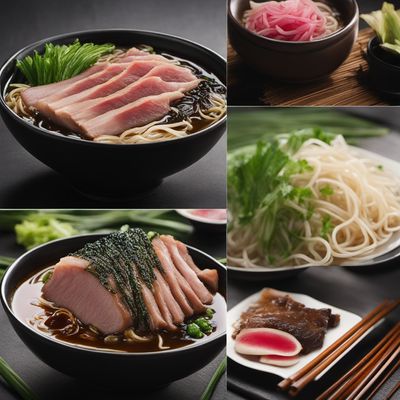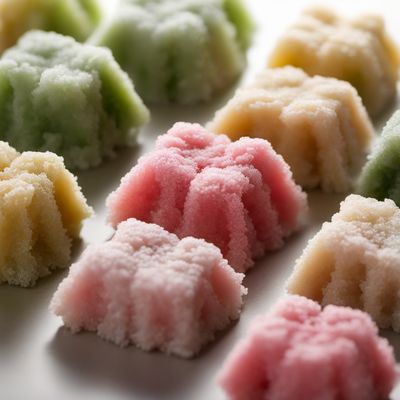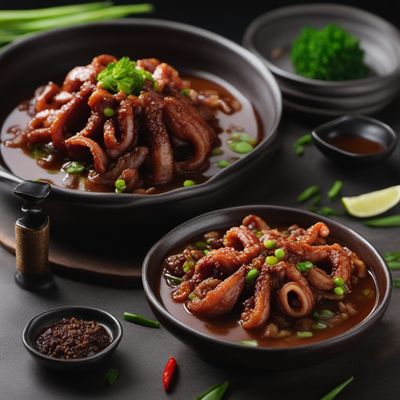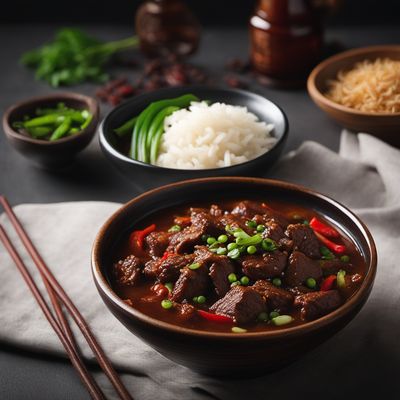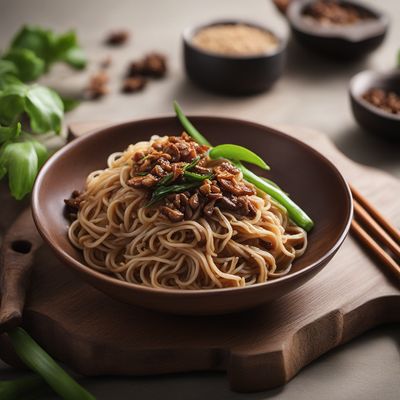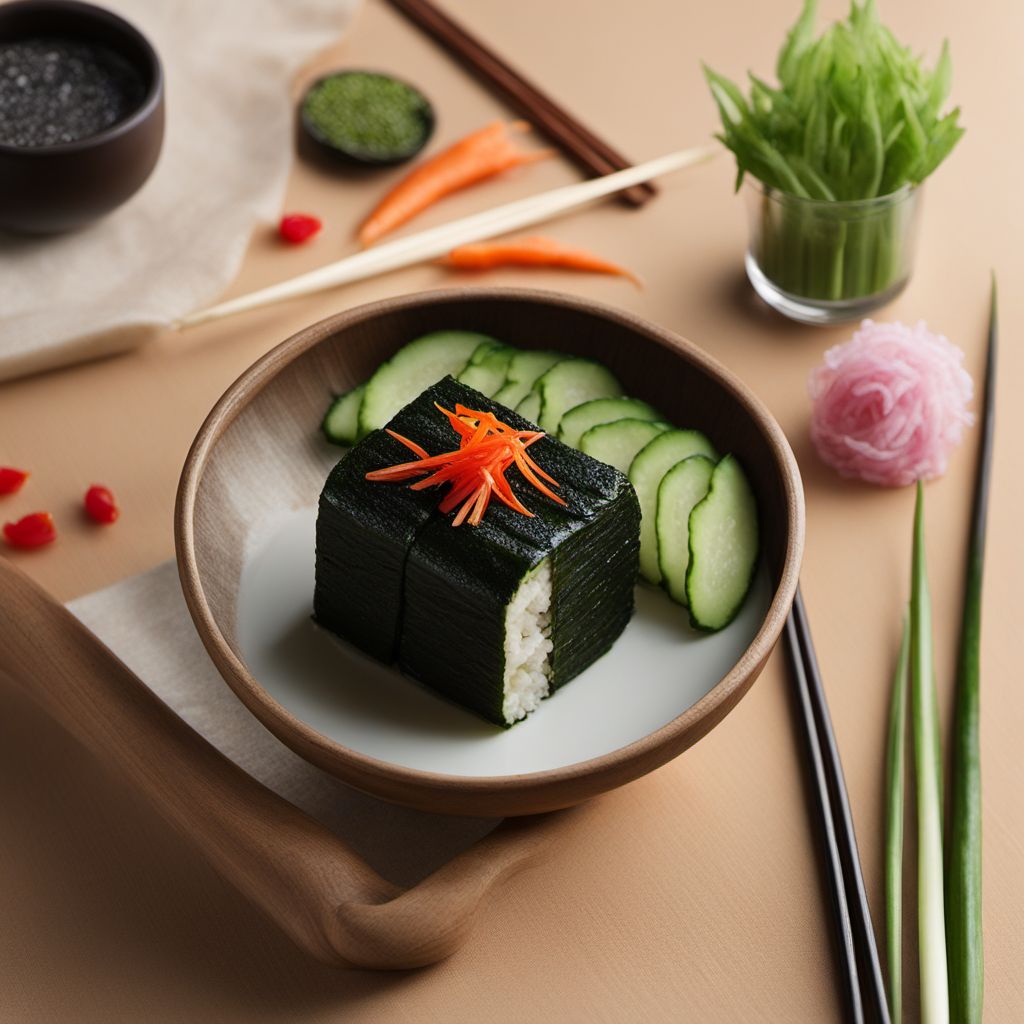
Recipe
Jiangsu-style Vegetable Hosomaki
Delicate Vegetable Rolls: A Taste of Jiangsu Cuisine
4.5 out of 5
This recipe presents a delightful twist on the traditional Japanese dish, Hosomaki, by infusing it with the flavors and techniques of Jiangsu cuisine. These vegetable rolls offer a harmonious blend of fresh ingredients and delicate flavors, showcasing the essence of Jiangsu culinary traditions.
Metadata
Preparation time
20 minutes
Cooking time
N/A
Total time
20 minutes
Yields
4 servings
Preparation difficulty
Easy
Suitable for
Vegetarian, Vegan, Gluten-free, Dairy-free, Nut-free
Allergens
Soy (in soy sauce)
Not suitable for
Paleo, Keto, Low-carb, High-protein, High-fat
Ingredients
In this adaptation, the traditional Japanese Hosomaki is transformed into a Jiangsu-style dish by incorporating the unique flavors and ingredients of Jiangsu cuisine. The original sushi rice is enhanced with a tangy rice vinegar dressing, reminiscent of Jiangsu's preference for sour flavors. The filling is composed of fresh vegetables commonly used in Jiangsu cuisine, such as cucumber, carrot, and radish, providing a distinct texture and taste. The rolls are also seasoned with a touch of fragrant sesame oil, adding a subtle nuttiness that complements the overall flavor profile. We alse have the original recipe for Hosomaki, so you can check it out.
-
2 cups (470ml) cooked sushi rice 2 cups (470ml) cooked sushi rice
-
2 tablespoons rice vinegar 2 tablespoons rice vinegar
-
1 tablespoon sugar 1 tablespoon sugar
-
1 teaspoon salt 1 teaspoon salt
-
4 sheets of nori (seaweed) 4 sheets of nori (seaweed)
-
1 cucumber, julienned 1 cucumber, julienned
-
1 carrot, julienned 1 carrot, julienned
-
1 radish, thinly sliced 1 radish, thinly sliced
-
1 teaspoon sesame oil 1 teaspoon sesame oil
Nutrition
- Calories (kcal / KJ): 180 kcal / 753 KJ
- Fat (total, saturated): 1g, 0g
- Carbohydrates (total, sugars): 40g, 2g
- Protein: 4g
- Fiber: 2g
- Salt: 1g
Preparation
-
1.In a small bowl, combine the rice vinegar, sugar, and salt. Mix until the sugar and salt are dissolved.
-
2.Place the cooked sushi rice in a large bowl and pour the vinegar mixture over it. Gently fold the rice to evenly distribute the dressing. Allow the rice to cool to room temperature.
-
3.Lay a sheet of nori on a bamboo sushi mat or a clean kitchen towel.
-
4.Wet your hands with water to prevent sticking, then evenly spread a thin layer of sushi rice over the nori, leaving a small border at the top.
-
5.Arrange a layer of cucumber, carrot, and radish slices on top of the rice.
-
6.Drizzle a small amount of sesame oil over the vegetables.
-
7.Carefully roll the nori and rice, using the sushi mat or towel to help create a tight roll.
-
8.Repeat the process with the remaining ingredients.
-
9.Once all the rolls are prepared, use a sharp knife to slice them into bite-sized pieces.
-
10.Serve the Jiangsu-style Vegetable Hosomaki with soy sauce or your favorite dipping sauce.
Treat your ingredients with care...
- Nori — Ensure that the nori sheets are fresh and crisp for easy rolling.
- Sushi rice — Use short-grain sushi rice for the best texture and stickiness.
- Rice vinegar — Opt for a mild rice vinegar to balance the flavors without overpowering the dish.
- Vegetables — Julienne the vegetables thinly and uniformly for even distribution and easy rolling.
- Sesame oil — Use a high-quality sesame oil to add a delicate nutty flavor to the rolls.
Tips & Tricks
- Wetting your hands with water while handling the sushi rice will prevent it from sticking to your fingers.
- Use a sharp knife to slice the rolls for clean and neat cuts.
- Experiment with different vegetable fillings to suit your taste preferences.
- Serve the rolls with pickled ginger and wasabi for an extra burst of flavor.
- If you prefer a spicier kick, add a few drops of chili oil to the vegetable filling.
Serving advice
Arrange the sliced Jiangsu-style Vegetable Hosomaki on a platter or sushi board. Garnish with a sprinkle of sesame seeds and finely chopped green onions for an added touch of freshness. Serve alongside soy sauce or your favorite dipping sauce.
Presentation advice
To enhance the presentation, arrange the sliced rolls in a visually appealing pattern, such as a spiral or a fan shape. Use a combination of colorful vegetables to create an eye-catching display. Place the rolls on a beautiful sushi plate or a wooden serving board to elevate the overall presentation.
More recipes...
For Japanese cuisine » Browse all
More Japanese cuisine dishes » Browse all

Kashiwa-mochi
Kashiwa Mochi
Kashiwa-mochi is a traditional Japanese sweet made of mochi (glutinous rice cake) filled with sweet red bean paste and wrapped in an oak leaf.

Karaage
Karaage is a Japanese dish of marinated and fried chicken pieces. It is a popular snack and often served as an appetizer in Japanese restaurants.
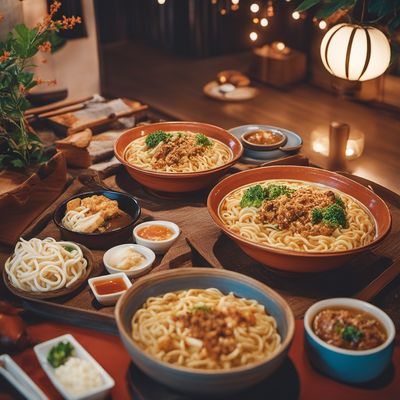
Kitsune udon
Udon Noodles with Fried Tofu
Kitsune udon is a type of Japanese noodle soup that is made with thick udon noodles and a savory broth. The dish is typically topped with fried...


